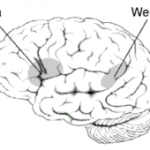HW4
Language Variation
Pg. 444
Johnathan/ Bryant/ Miki/ Brian
14)
S/Ph/Ph/ Ph
Sm/ S / S/ S
Ph
Sm
P/ M/ /
P
Pg 445
16)
a.) Some/ some/ non-native/non-native
b.) Natural/ natural/ natural/natural
c.) Some/ some/ some/ some
d.) Some/ some/ natural/ some
e.) Natural/ some/ some/ some
f.) Non-native/ some/ some /some
g.) Natural/ some/ natural/ natural
h.) Some/ some/ some/ some
i.) Natural/ natural/ some/ some
j.) Natural/ natural/ natural/ natural
k.) Non-native/ non-native/ non-native/ some
l.) Some/ some/ non-native/ some
m.) Natural/ some / non-native/ natural
n.) Some/ natural/ some/ some
o.) Non-native/ non-native/ non-native/ none-native
Pg 446
17)
a.) a large open metal container for water is (a) bucket (b)pail (a) (a)
b.) To carry groceries, you put them in a paper (a) bag (a) (a) (a)
c.) Window coverings on rollers are (a) blinds (b)shades (a) (a,b,e) (curtains)
d.) Pepsi-Cola, Coca-Cola, and Seven Up are all kinds of (a) sodas. (d)soft drinks (a) (a)
e.) On summer nights when we were kids, we used to try to catch (a) fireflies (a) (a) (a)
f.) If you go to a popular film, you may have to stand (b) in line. (b) (b) (b)
g.) If your living room is messy, before company comes you (d) clean it up. (a)straighten it up (d) (a,b) (red it up)
h.) if you’re talking to a group of friends, you call them (a) you guys (a) (a) (a)
i.) It’s now a quarter (c)til 5. (b)to 5 (b) (b)
Language & Culture
Pg 479
1) The same language (both people can understand each other), the person is in range (distance), changing of expression depending on the degree of respect , being silent during a conversation in order to “read the atmosphere”(Japanese) Knowing when a greeting is rhetorical or an actual question can be difficult in unfamiliar settings.
2) Cultural competence is linked to various cultures that one can go through life as opposed to what we are hardwired to learn Cultural competence is the proficiency with which one speaks, as viewed through both the language and the current cultural norms. Linguistic competence is the proficiency with which one speaks as viewed through the language itself, without the cultural baggage which may otherwise change the use of the language in isolation. And Linguistic performance is simply the actualization of one’s Linguistic Competence, as actually performed rather than theorized.
3) Adjacency pairs are pairs of adjacent utterances produced by two speakers in which the first utterance provokes the hearer to respond with the second utterance.
Part 1 of Adjacency Pair Part 2 of Adjacency Pair
What’s your name? John Connor.
Where’s the bathroom? Down the hall first door on your left.
I’m hungry. Got any food? Umm lemme check
Are we there yet? Hey that’s not funny.
Did you hear that? Hear what?
Howzit?! Eh, howzit?!
Pg 480
15) Perhaps the most evident establishment of speaker dominance/ hierarchy that I know of is in Japanese. The use of honorifics is a clear cut example of what the relationship between the two speakers is. For example, if someone were to use the honorific “sama” earnestly when speaking to or of another person, it is clear that they place the aforementioned person at a very high rank. Conversely, if one were to refer to another as “kun”, “chan”, or “bou” it is quite clear that that person is placed lower on their scale. There are even more concrete examples with “senpai” and “kouhai” which essentially mean “senior” and “junior”. These are the most obvious indicators of a conversational hierarchy that I am aware of.
Pg 482
28)
a) Etic: A relatively short Asian male of about 18-20 years of age gathered the attention of another asian male of approximately the same height and age. Next, he made a sign with his right hand by extending only his pinkie and thumb, and briefly shaking at about chest height at the other person’s direction (palm outwards). Simultaneously, he said “Howzit brah”. The other person responded by reciprocating the same physical actually, and responded verbally with “Ho, howzit”.
Emic: I saw my friend Jake so I threw a shaka and him and said “Howzit brah”. He shaka’d back and responded with “Ho, howzit”
b) Etic: There I sat, with fried chicken covered in an orange sauce with some spice to it, with fried pieces of potatoes. I stabbed the chicken with a plastic three pronged eating utensil and lifted the utensil and used it to dip the fried chicken covered in the sauce into this white substance with tiny black spots labeled “buttermilk ranch” and proceeded to bring the fried chicken covered in buttermilk ranch into my mouth. I closed my lips and pulled the utensil out and chewed. Then I proclaimed how good the chicken was.
Emic: I sat with my SoCal Chicken and dipped it into the ranch with my fork and ate it. Then I said “Damn this is good chicken.
c) Etic: The stylish Linguistics Professor with glasses and facial hair walked in and greeted his class a good morning, he then got out markers and began writing on the board and soon gave announcements.
Emic: Professor Bigham walked in and said his routinely “good morning” he began writing announcements on the board and soon read them aloud..
29) Passive participation is when the researches merely observe how the natives of the area they are studying interact with each other in order to learn how they communicate. Participant observation is when they “go native” and become a part of the community in order to gather more accurate information.
Language Change
Pg 557
10) Because we can trace back languages that exist today to proto-Germanic the same way we trace back Romantic languages to Latin, as evidenced by a number of certain words that are similar, cognates, among the different, current languages under the Germanic tree branch.
14) The words knife and knight are spelled as such because both initial consonants used to be pronounced, with the actual onset of the word being a /k/, but due to language change and outside influence, the pronunciation of the word changed, however the spelling did not.
Pg 561
22)
hear and heard
wore and wear
hi and high (both slang terms)
spelled vs spelt
data/datum vs data
media/medium vs media + medium
The fluctuations occur due to the way the masses use the words.
Pg 562
29)
i) Many words that we use when dealing with computers or technology are simply terms that have been repurposed from more general uses. Browse, Surf, Web, Search, Page, etc. These are words that had been used in the past, and may still be in use, but are, more often than not, primarily used for their technological purpose. On the other hand, there are new words that were just created. Google, Wi-Fi, Motherboard, Pixel, Bit/Byte, etc. More words tend to be repurposed words than new words. I think this is because it is hard to just create new terms and have them last. Notice how only the really wide-spread / popular terms survive. No one ever “yahoos” something.
ii) Extension has occurred for all of the old words. One reason, as Brian mentioned above, is that because it is harder to produce a new term. Another reason is that the internet was primarily for the storing and accessing of information. Back in “ye olden days” one would browse the shelves for a book to access information, then one would browse the Web which was basically the same thing as browsing for a book but way more convenient, now we just ask Siri.
Pg 563
33)
a. cynic origin: cynicus (the name of a gymnasium where Antisthenes taught) degradation
b. hacker origin: haccian ‘cut in pieces’ Gmc origin degradation
c. anecdote origin: anekdota (things unpublished) reduction
d. grotesque origin: crotesque (work or painting resembling that found in a grotto) degradation
e. parakeet origin: paroquet( little wig) extension
f. leer origin: leer( cheek) extension
g. captivated origin: captivat (take captive) elevation
h. paisley origin: named after the town of Paisley in Scotland extension
Language Contact
Pg 513
12) Japanese has a lot of words borrowed from English and the amount of those has been increasing these days. This actually makes it easier for us to learn English sometimes. However, I do think this trend can be a threat to Japanese language itself because people are more likely to use English-Japanese words instead of using original Japanese expression. This could lead us to forget the original form of language, but language is something that cannot help but changing as time goes by, so I cannot say for sure that it totally has negative effects on a language.
Pg 516
22) The text is somewhat comprehensible. It seems to have the same sentences structure as English. “Wans apan a time dier waz” is a very familiar phrase that many children’s books start with. A good amount of the words are English words but just spelled differently, perhaps it is spelled to the way the speakers of this pidgin pronounce the language. Some words that are troublesome are “kriol” and “triki”
23) Most of the vocabulary is very English, or at the very least derived from English; the spelling used to indicate the pronunciation makes it much harder to make the connection, but most of the these words are comprehensible to an English speaker (excluding the Hawaiian words of course). As for the structure, the grammar is quite different, however it is still logical in its flow and could its meaning could still be understand by most non-speakers. I can understand 100% of this text, however, it does sound quite archaic and most Pidgin speakers would consider this to be very dated.
Pg 517
29) Trying to prevent endangered languages from dying is a worthwhile effort. Daryl Baldwin believes that the language reflects the traditional beliefs and values and according to Rosa Beck, their language was taken from them. So for a language to be taken away it is like their traditions have been removed from the society as well as the history with it.




 D5 Creation
D5 Creation
Comments are Closed